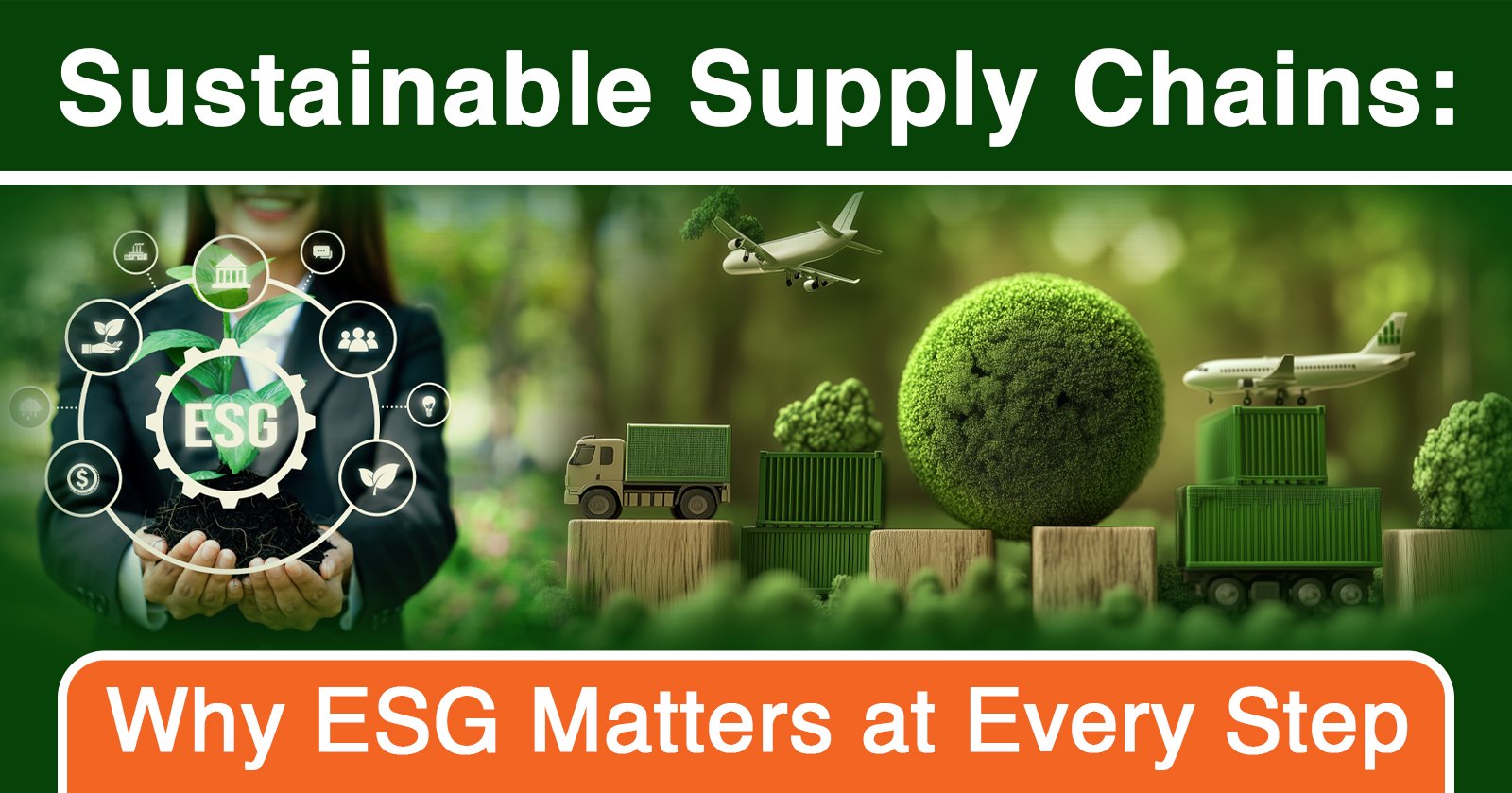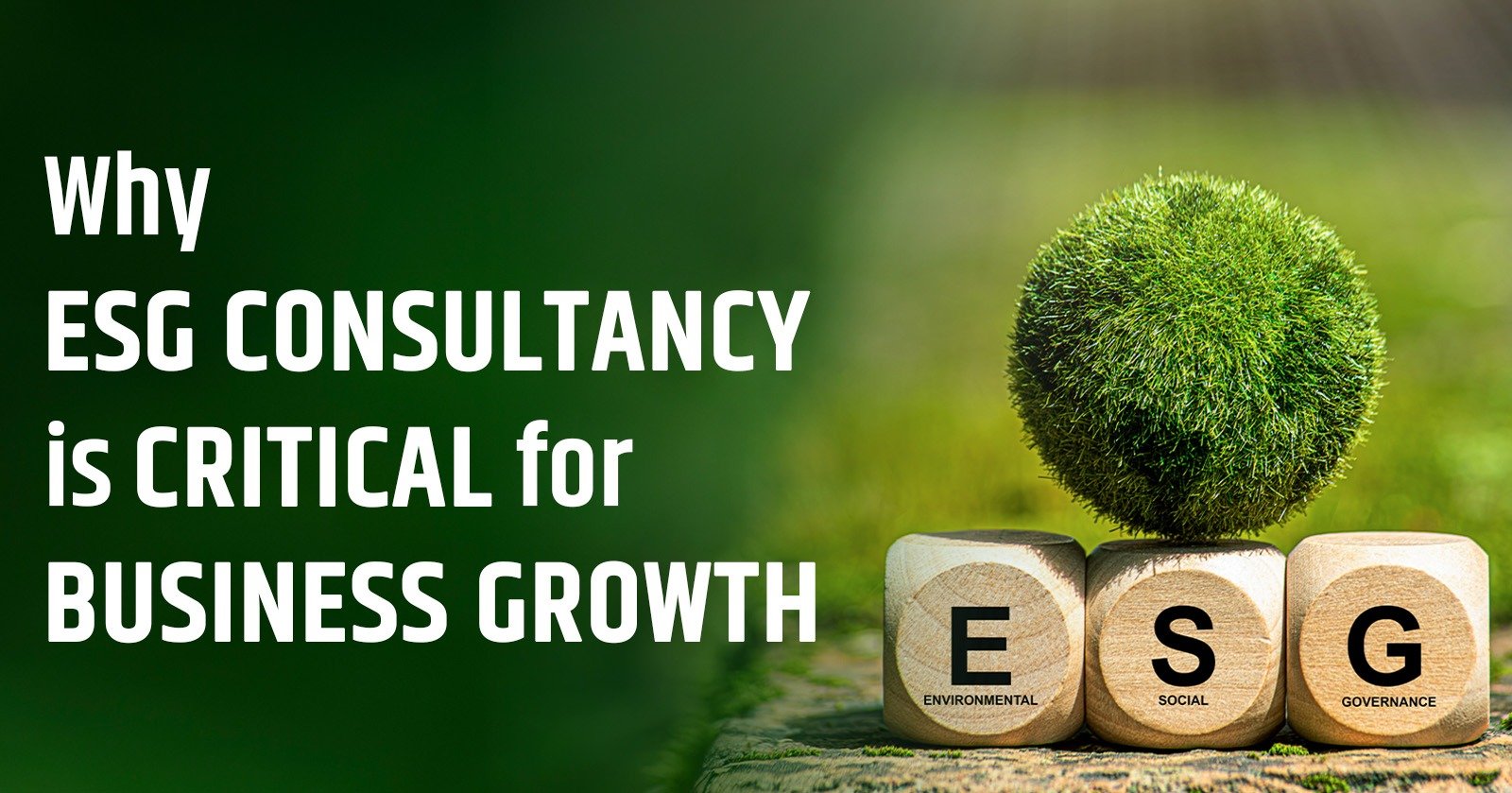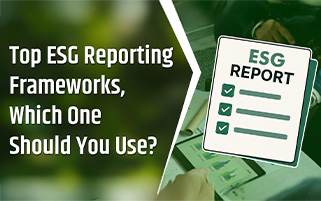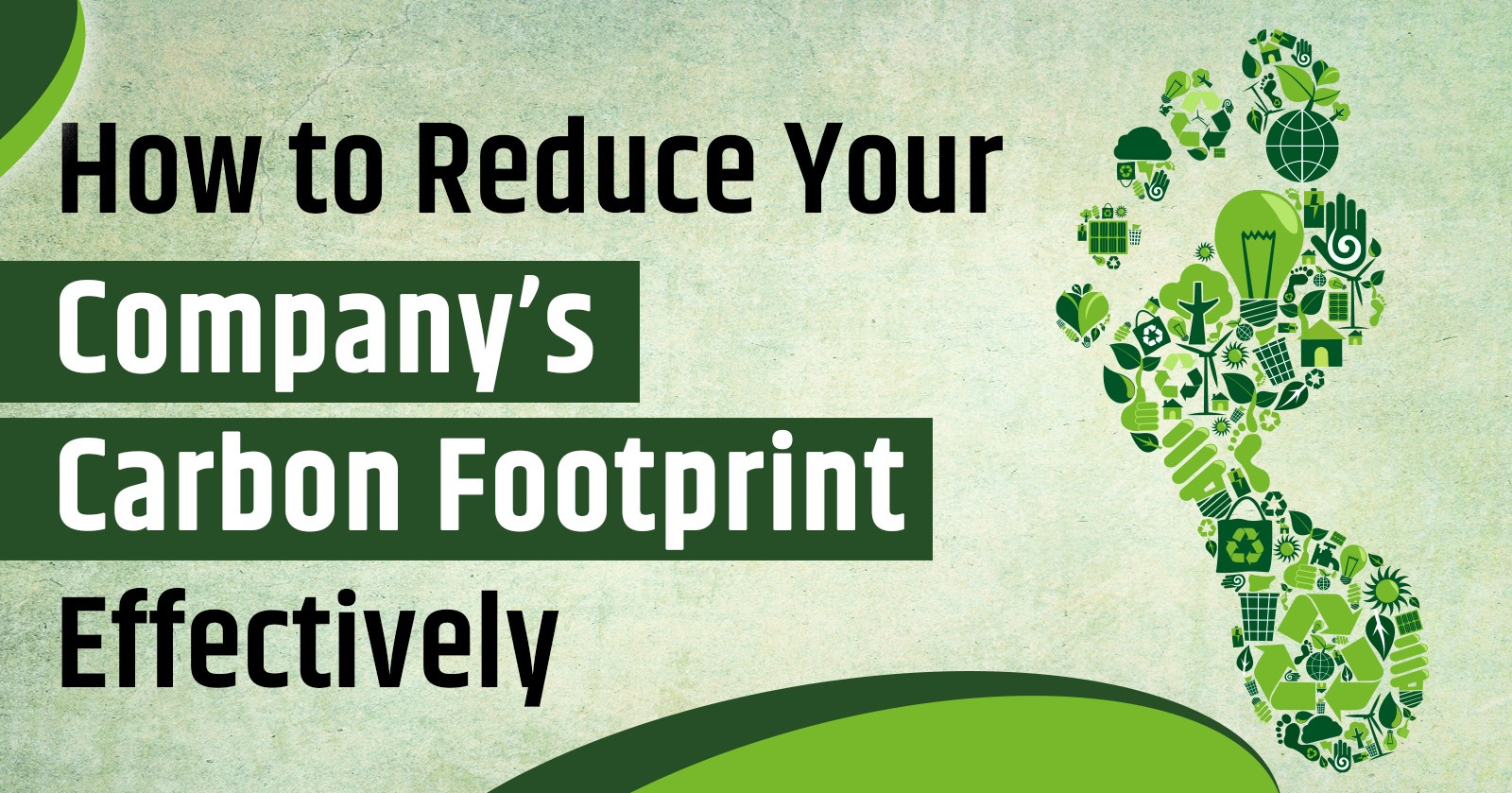Sustainable Supply Chains: Why ESG Matters at Every Step

Businesses are now expected to build sustainable supply chains that not only deliver products from one place to another place but also protect the planet and people.
This means following ESG (Environmental, Social, and Governance) standards, choosing ethical sourcing, adopting green procurement, and working only with responsible suppliers. In this guide, we will explain why ESG matters at every step.
What Is ESG?
ESG stands for Environmental, Social, and Governance. It shows how a company cares for the environment, treats people, and manages its business responsibly. Today, investors check a company’s ESG report before deciding to invest.
Companies create ESG reports to share their progress in these areas. It starts with an ESG assessment, which helps understand the current situation. ESG planning helps set a practical plan to achieve sustainability and governance targets.
What Is a Sustainable Supply Chain?
ESG means Environmental, Social, and Governance. It is about running a business responsibly. When businesses apply an ESG strategy to their supply chains, they ensure that every step aligns with sustainability, from purchasing and manufacturing to logistics and waste management. ESG compliance helps to reduce risks, enhance reputation, and improve operational efficiency.
Because supply chains connect so many steps, each one can create problems or solutions. A sustainable supply chain makes sure those steps support people, protect the planet, and keep businesses successful.
Why ESG Is Important for Supply Chains?
If businesses apply ESG compliance, they can get many benefits while supporting a sustainable future. It helps companies work more efficiently by using natural resources and reducing waste, which can save money and resources.
With a sustainable supply chain, companies can deal with challenges like climate change, natural disasters, or regulations. Ethical practices such as ethical sourcing and working with responsible suppliers build reputation and enhance customer and investor trust.
Following ESG compliance builds a good company reputation, attracting loyal customers and potential investors who value responsible business practices.
By following ESG, companies treat workers fairly, respect human rights, and protect both communities and the environment. While it needs effort, that makes supply chains more reliable and sustainable.
Why Is Integrating ESG into Supply Chains Challenging?
Adopting ESG into supply chains can be challenging, but following the right steps and hiring an ESG consultancy like Susttrack can make it easy to create a sustainable supply chain. Let’s take a look at what challenges come with integrating ESG into the supply chain.
Challenges of Modern Supply Chains
Global supply chains and ESG compliance are complex, with multiple suppliers, contractors, and partners that make monitoring difficult. Applying and monitoring ESG in such a system can be tough, especially with Global rules.
Engagement Supplier
Some suppliers may not want to make changes or spend money on ethical sourcing or green procurement. Getting all partners in the supply chain to support sustainability and follow the rules can be challenging.
Cost Challenges
Implementing ESG in the supply chain often requires spending on technology, audits, or supplier training. Smaller suppliers may not have enough money to make these changes. Balancing the costs with the long-term benefits can be a big challenge.
ESG Reporting and Data Collection
Collecting accurate ESG data across the supply chain can be challenging. Companies face challenges in collecting complete information because the process is unreliable or hard to access.
This data helps companies meet regulations like CSRD and ESRS, which require reporting ESG for the full supply chain. To do well in a sustainable supply chain, companies need simple systems to collect and analyze data. That’s why ESG is now a must for business.
Why ESG Matters in Today’s Business Environment?
There are many reasons ESG is important for businesses, such as:
- ESG compliance helps companies build trust and improve their reputation.
- Nowadays, many investors prefer to invest their money in businesses that care for the environment.
- With an ESG strategy, you can set a clear plan to achieve sustainability goals.
- By hiring a professional ESG consultancy like Sustrack, the company can take steps towards sustainable goals.
- ESG strategies prevent your business from problems like worker disputes or pollution fines.
- Integrating green procurement and ESG compliance ensures fair treatment of workers and protection of communities and the environment.
- A well-planned ESG roadmap helps to track your progress easily.
- Customers also prefer to support brands that care about people and the environment.
Why Choose SUSTRACK for a Sustainable Supply Chain?
SUSTRACK helps businesses build sustainable supply chains that are ethical, efficient, and environmentally responsible. We guide businesses at every step through ESG compliance, ethical sourcing, green procurement, and responsible supplier management.
With our support, companies can overcome challenges, save costs, improve efficiency, and meet regulatory requirements, all while making a positive impact on people and the environment.
Our team provides end-to-end ESG guidance, from assessment and planning to implementation and reporting. We prevent companies from challenges such as complex global networks, supplier engagement, cost management, and data collection.
By choosing SUSTRACK, businesses can reduce risks, improve operational efficiency, enhance their reputation, and meet regulatory requirements.
Frequently Asked Questions (FAQs)
What is ESG compliance in a sustainable supply chain?
Answer: ESG compliance means following Environmental, Social, and Governance standards in company internal policy. It ensures that every step, from sourcing to delivery, meets sustainability and ethical requirements.
What is ethical sourcing?
Answer: Ethical sourcing means working with suppliers who treat people fairly, follow labor laws, and minimize environmental impact.
Why is green procurement important for supply chains?
Answer: Green procurement helps reduce waste, lower carbon emissions, save natural resources, and support sustainability goals in the supply chain.
How can companies engage responsible suppliers?
Answer: Companies can engage with responsible suppliers by building strong partnerships, providing guidance, monitoring supplier performance, and promoting collaboration on ESG initiatives.
How to contact Sustrack for a sustainable supply chain?
Answer: You can easily reach out to us by filling the “Contact Us” form, emailing us at sutainability@Sustrack.com or calling us at +919319898152. Our team will connect with you as soon as possible.




